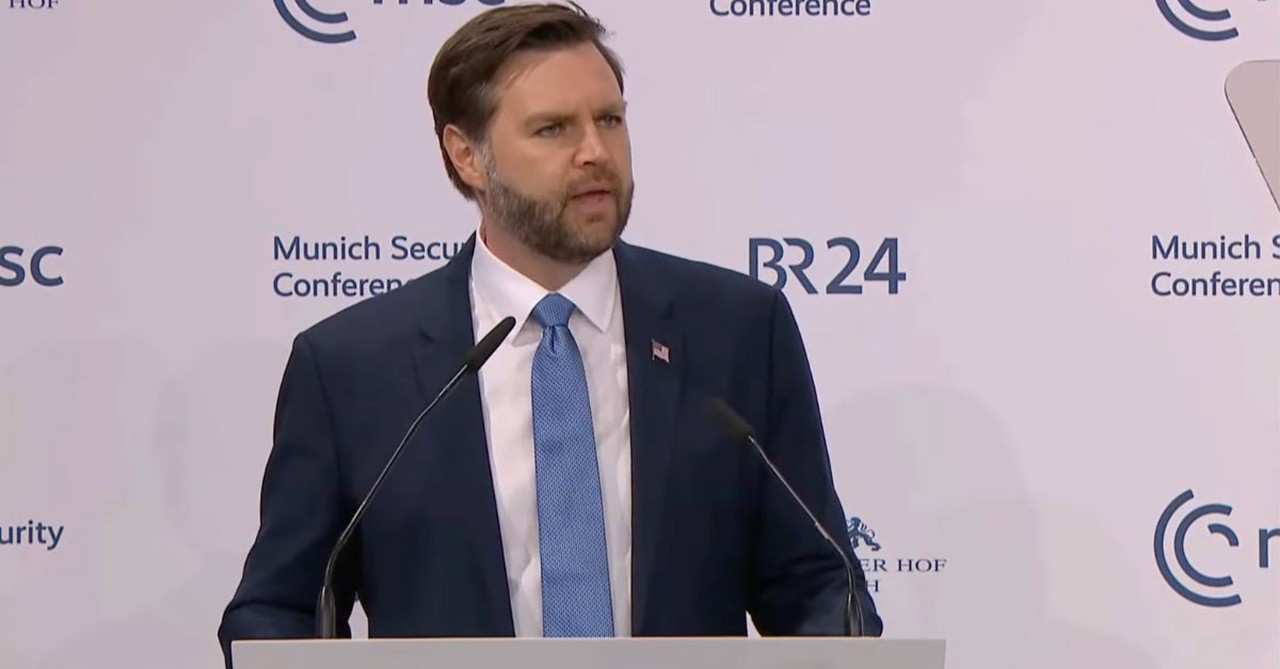
Vice President J.D. Vance spoke at the Munich Security Conference on Friday. The conference attendees included G7 leaders from Canada, France, Germany, Italy, Japan, the United Kingdom, the High Representative of the European Union, and many others, according to The U.S. Department of State.
Ironically, the day before the security conference, there was an attack by an Afghanistan asylum seeker living in Munich. The attacker is suspected of having an extremist background. He had a previous criminal record detailing his involvement in drugs and thefts. He used a car for his attack, plowing into a group of about 1500 people on a crowded Munich street who were rallying for higher wages. About 30 people were killed. The tragic event happened about one mile away from the security conference location. Germany's chancellor said the attacker "must be punished" and "will be made to leave the country," according to NBC News. JD Vance not only acknowledged the tragic event in his speech at the Munich Security Conference, but he also spoke on faith and prayer. Here are 7 things Christians should know about what Vance said at the Munich Security Conference.
Photo Credit: ©YouTube/The White House
1. Vance Touched on America and Europe's Shared Values
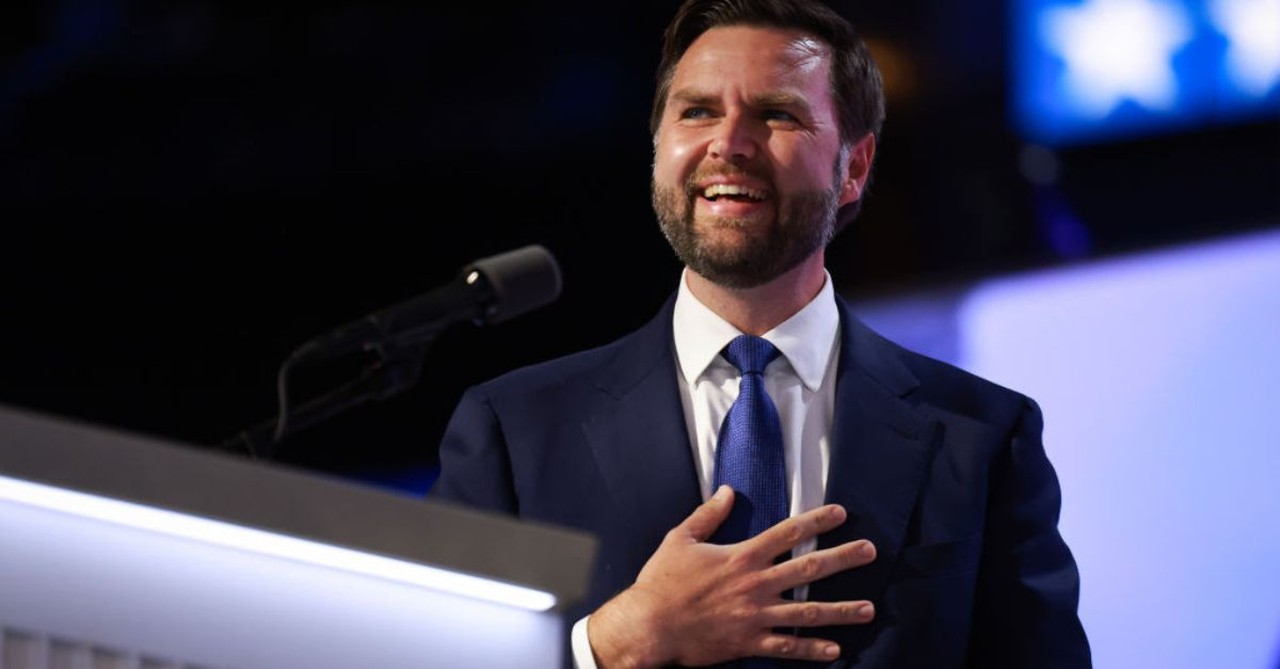
1. Vance Touched on America and Europe's Shared Values
SLIDE 1 OF 7
United States Vice President J.D. Vance acknowledged that tragic event toward the beginning of his speech with gentleness, kind condolences, and by letting everyone know that people would be praying for Munich. Then, he moved on with the message he wanted to share.
"One of the things I wanted to talk about today is, of course, our shared values," he said, according to AS TV.
"Now it's time for all of our countries, for all of us who have been fortunate enough to be given political power by our respective peoples, to use it wisely to improve their lives," said Vance
He clarified that security normally refers to threats regarding external security, such as from foreign invasions and perhaps the military conflict between Russia and Ukraine spilling over into other countries.
"But the threat I worry about the most," he began, "…is the threat from within. The retreat of Europe from some of its most fundamental values. Values shared with the United States of America."
He said he felt "struck" when a former European commissioner went on television recently and delighted in announcing that the Romanian government had just annulled an entire election. He warned that if things didn't go as planned, that the same sort of thing could happen in Germany, too.
"Now these cavalier statements sound shocking to American ears. For years we've been told that everything we fund and support is in the name of our shared Democratic Values; everything from our Ukraine policy to digital censorship is billed as a defense of Democracy." Vance said.
He contrasted this with recent concerns about European and other courts either canceling or threatening to cancel elections, suggesting that in the face of such actions, "we ought to ask if we're holding ourselves to an appropriately high standard. And I say 'ourselves' because I fundamentally believe that we are on the same team. We must do more than talk about Democratic Values. We must live them."
Photo Credit: ©Getty Images/Joe Raedle/Staff
2. Vance Discussed Tyranny's Playbook during the Cold War
2. Vance Discussed Tyranny's Playbook during the Cold War
SLIDE 2 OF 7
He reminded listeners of the days of the Cold War, saying, "The Cold War positioned defenders of Democracy against much more tyrannical forces on this continent. And consider the side in that fight that censored dissidence, that closed churches, that cancelled elections.
"Were they the good guys?" He asked. "Certainly not! And thank God they lost the Cold War. They lost because they neither valued nor respected all of the extraordinary blessings of liberty."
3. Vance Spoke on the Erosion of Liberty in Europe
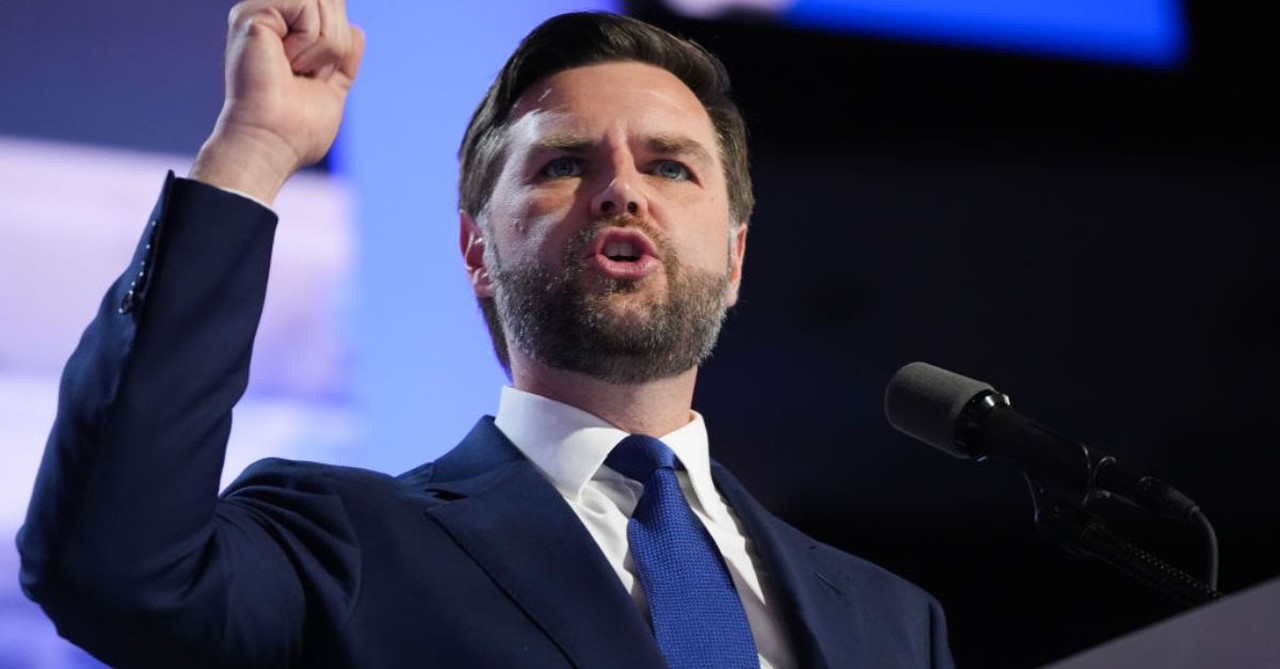
3. Vance Spoke on the Erosion of Liberty in Europe
SLIDE 3 OF 7
When liberty has free reign, Vance said it cultivates "The freedom to surprise, to make mistakes, invent, to build: as it turns out, you can't mandate innovation nor creativity, just as you can't force people what to think, what to feel or what to believe. And we believe those things are certainly connected."
But when looking at Europe today, Vance said it saddens him that it's not very clear to him what has happened to some of the winners of the Cold War.
- He brought up Brussels and how EU Commissars have warned people that social media will be shut down during times of unrest as soon as they spot what they decide is, "hateful content."
- He brought up Germany and instances of the police carrying out raids against citizens who have only been suspected of posting anti-feminist comments online as part of "combating misogyny on the internet; a day of action."
- He brought up Sweden and that only a couple weeks prior to the conference, the Swedish government convicted a Christian activist for participating in Koran burnings that resulted in his friend's murder.
The judge presiding over that case stated that "Sweden's laws to supposedly protect free expression do not, in fact, grant a free pass to do or say anything without risking offending the group that holds that belief."
- He brought up the United Kingdom and a sad incident in which physiotherapist and army veteran Adam Smith Connor was charged with the "crime" of standing 50 meters from an abortion clinic and silently praying for three minutes. He wasn't blocking the entrance or even interacting with anyone. But the law said that you must be at least 200 meters away and can't do anything that could interfere with a person's decision to have an abortion, including standing around praying. Connor was sentenced to thousands in legal costs.
- He brought up the Scottish government and letters that were sent out to people just this past October who were living in "safe access zones." The letter warned that private prayer, even inside the homes of citizens, "may amount to breaking the law." The letter also encouraged citizens to report each other if anyone is found being guilty of such activity.
Vance said that he fears that free speech is "in retreat" in Britain and all across Europe. He also willingly told on America, and some of the censorship that has happened here. More specifically, he mentioned how the prior administration threatened and bullied social media companies to censor "misinformation" about the coronavirus during the early days of its reign. Anyone who posted that it was leaked from a lab in China was accused of posting "misinformation." A few years later, it was finally admitted that it was indeed the truth that the coronavirus had been leaked from a lab.
Photo Credit: ©Getty Images/Andrew Harnik/Staff
4. Vance Offered European Leaders a Different Path
4. Vance Offered European Leaders a Different Path
SLIDE 4 OF 7
Vance said that he wanted to extend an offer to each of the world leaders in the room. As emphatic as the Biden administration was to impose censorship, he said the Trump administration would do exactly the opposite. He hoped that all of the world leaders would also embrace extending freedom of speech back to their citizens once again.
While the U.S. may not agree with every view in Europe, Vance promised that the U.S. would fight for the right of each country and its people to disagree publically if they chose to do so.
Vance brought up Romania again but detailed how its December election results were canceled due to the claims of "an intelligence agency and enormous pressure from [Romania's] continental neighbors" who claimed that Russia had influenced the elections through social media disinformation.
He requested that the leaders in the room "have some perspective." He acknowledged that they may believe it's wrong for Russia to engage in such activity and admitted that the United States certainly believes that too.
"But if your democracy can be destroyed with a few hundred thousand dollars of digital advertising from a foreign country, then it wasn't very strong to begin with," he said.
5. Vance Encouraged Leaders to Listen to Their Citizens
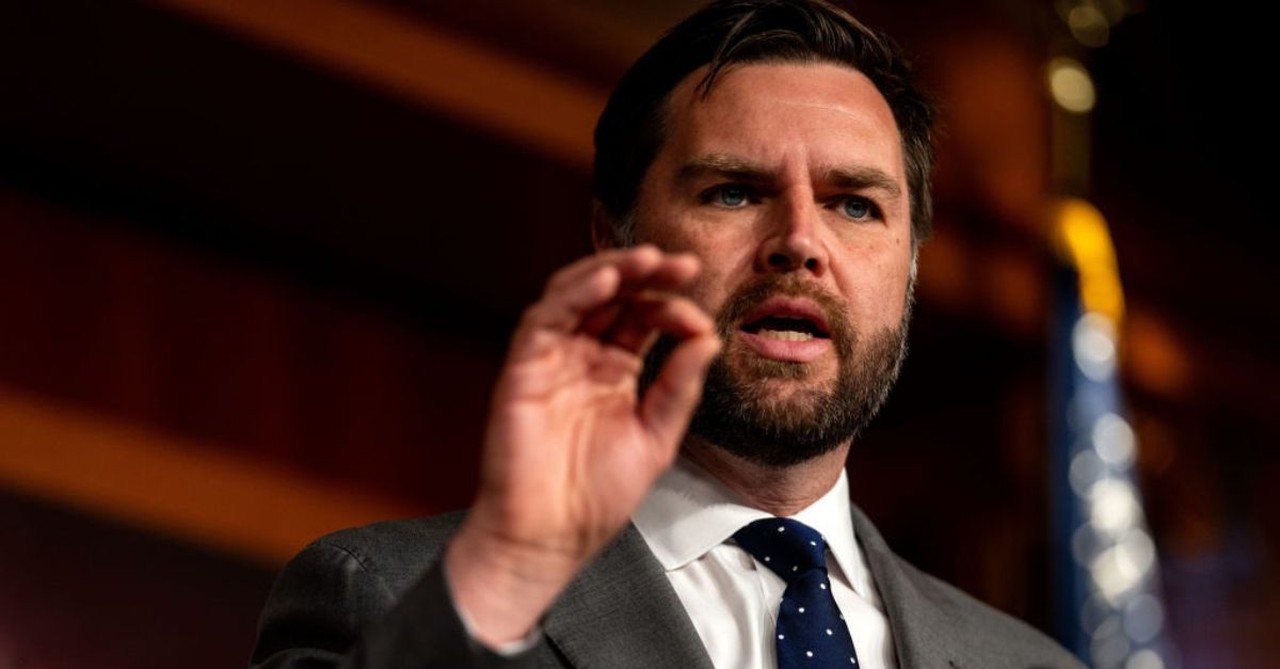
5. Vance Encouraged Leaders to Listen to Their Citizens
SLIDE 5 OF 7
He went on to offer some encouragement to attendees, saying that he doesn't believe the democracies across Europe are that brittle, and that allowing citizens to "speak their minds" will make those democracies even stronger.
He also encouraged the leaders in the room to "step up" and take on more responsibility for defending Europe themselves, and quit expecting America to do the bulk of their defense. Vance said that if they will take that responsibility, that America can then spend more time focusing on areas of the world that are in great danger.
Vance challenged them to consider "what is the positive vision that animates this shared security compact that we all believe is so important?"
"I believe, deeply, that there is no security if you are afraid of the voices, the opinions, and the conscience that guides your very own people," Vance said.
He acknowledged that Europe faces many challenges, but he believed the more pressing collective crisis being faced by every country being represented at the conference is "one of our own making. If you're running in fear of your own voters, there is nothing that America can do for you. Nor, for that matter, is there anything that you can do for the American people who elected me and elected President Trump."
He went on to insist that democratic mandates are needed in the coming years to accomplish anything of value because thin mandates only produce unstable results.
Vance said he believes that there is great value that can be accomplished with the democratic mandate that encourages being more responsive to the voices of European citizens.
Some of the values he named included more competitive economies, more affordable energy, and secure supply chains. However, he pointed out that solid mandates are needed to govern these things because difficult choices need to be made in order to enjoy all of these things.
"You cannot win a democratic mandate by censoring your opponents or putting them in jail," he said.
Photo Credit: ©Getty Images/Kent Nishimura/Stringer
6. Vance Called Mass Migration an Urgent Crisis
6. Vance Called Mass Migration an Urgent Crisis
SLIDE 6 OF 7
Vance said that there was "nothing more urgent" for every country represented in the room than the issue of mass migration.
"Today, almost one in five people moved here from abroad. That is, of course, an all-time high. It's a similar number, by the way, in the United States, also an all-time high."
Vance said this increase "is the result of a series of conscious decisions made by politicians all over the continent and others across the world over the span of a decade. We saw the horrors of these decisions yesterday in this very city."
He went on to detail the profile of the Afghanistan asylum seeker and his criminal background, expressing his condolences over the attack once again. Then Vance demanded to know, "But why did this happen in the first place? It's a terrible story, but it's one we've heard way too many times in Europe and, unfortunately, way too many times in the United States as well."
He posed another question: "How many times must we suffer these appalling setbacks before we change course and take our shared civilization in a new direction? No voter on this continent went to the ballot box to open the floodgates to millions of unvetted immigrants."
7. Vance Warned against Silencing Voter Concerns
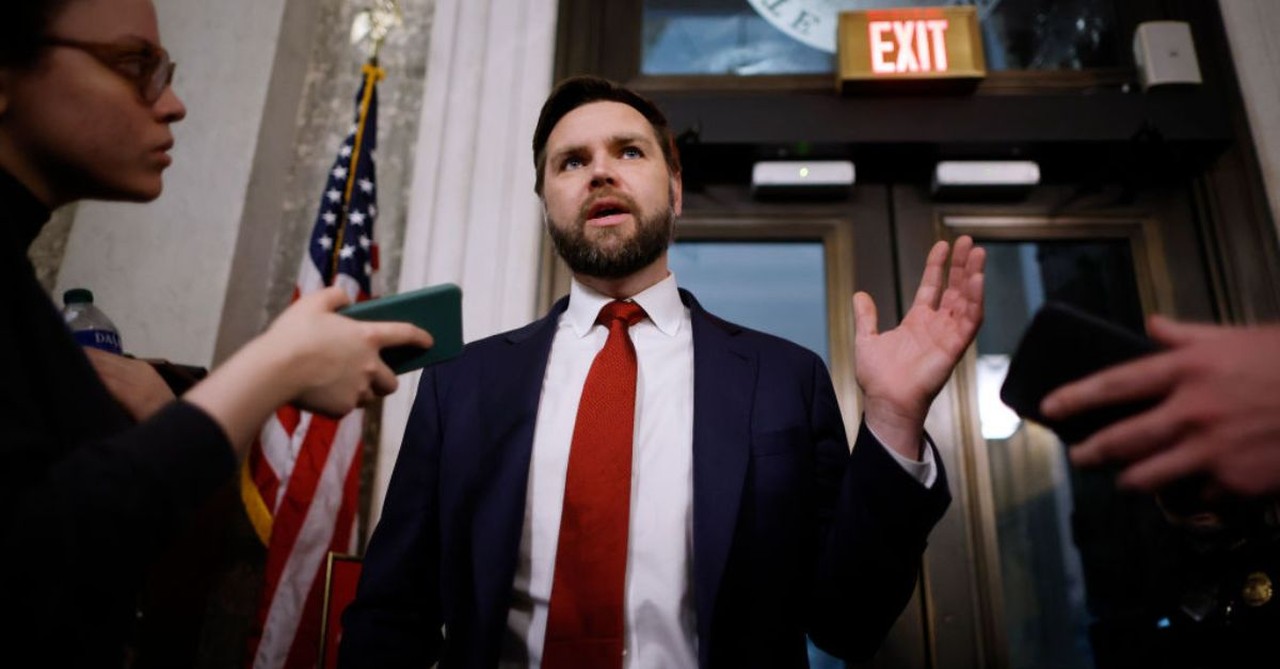
7. Vance Warned against Silencing Voter Concerns
SLIDE 7 OF 7
What they did vote for was, "political leaders who promise to put an end to out-of-control migration," Vance said.
He went on to note that citizens are smart. Their ability to care for their homes, dreams, safety, and capacity to care for their children are profoundly deep concerns for them.
"Dismissing people's concerns, or worse yet, shutting down media, shutting down elections, or shutting people out of the political process protects nothing. In fact, it is the most surefire way to destroy Democracy," Vance said, adding that "Democracy rests on the sacred principle that the voice of the people matters. There's no room for firewalls. You either uphold the principle, or you don't."
He went on to assure the room of leaders that they need to "Embrace what your people tell you, even when it's surprising, even when you don't agree. And if you do so, you can face the future with certainty and confidence, knowing that the nation stands behind each of you."
Photo Credit: ©Getty Images/Chip Somodevilla/Staff

Originally published February 18, 2025.







